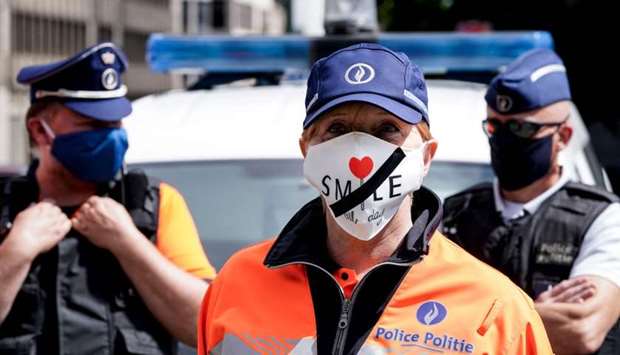Several hundred Belgian police officers staged a street protest on Friday to complain at what they see the unfair criticism and pressure they had to endure during recent anti-racism demonstrations.
Mainly wearing civilian clothes, officers symbolically laid their handcuffs on the ground as they lined up in front of the Palais de Justice court building in Brussels.A protest movement that began among black communities in the United States in May after US police killed unarmed suspect George Floyd has spread around the world, including to Belgium.
At least one demonstration in Brussels against a statue celebrating Leopold II, who as king in the 19th century ruthlessly exploited Belgium's central African colony, has turned violent.
The Belgian officers insist they have not behaved like US counterparts, but they too have been accused of racism in policing the country's immigrant minorities.
On Wednesday, Pierrette Herzenberger-Fofana, a 71-year-old black German member of the European Parliament, complained she had been subjected to an aggressive and humiliating search during an identity check.
Her emotional account of the incident won her applause in the parliament, and the speaker David Sassoli has written to Belgian Prime Minister Sophie Wilmes to demand an explanation.
Friday's protest of around 300 officers in Brussels was matched by a similar-sized turnout in Liege, organised by an ad hoc Facebook collective called the "Police Unifying Movement."
"No, the Belgian police is not the American police," insisted Inspector Vincent De Clerq, one of the few protesters who agreed to speak to a media the forces accuse of hostile coverage.
"We have to stop generalising, The majority of police do their jobs very well. The Floyd case is scandalous, but it was the act of a minority," he told AFP.
In Liege, police chief Christian Beaupere has expressed solidarity with the movement -- still a small proportion of the 50,000 officers in the country.
"Day and night, the police have to suffer insults, spitting, incitement. It has really increased since the death of George Floyd," he told RTBF public television.
It needs to stop. We need to recover the trust of the population, or at least those who are generalising about us."

